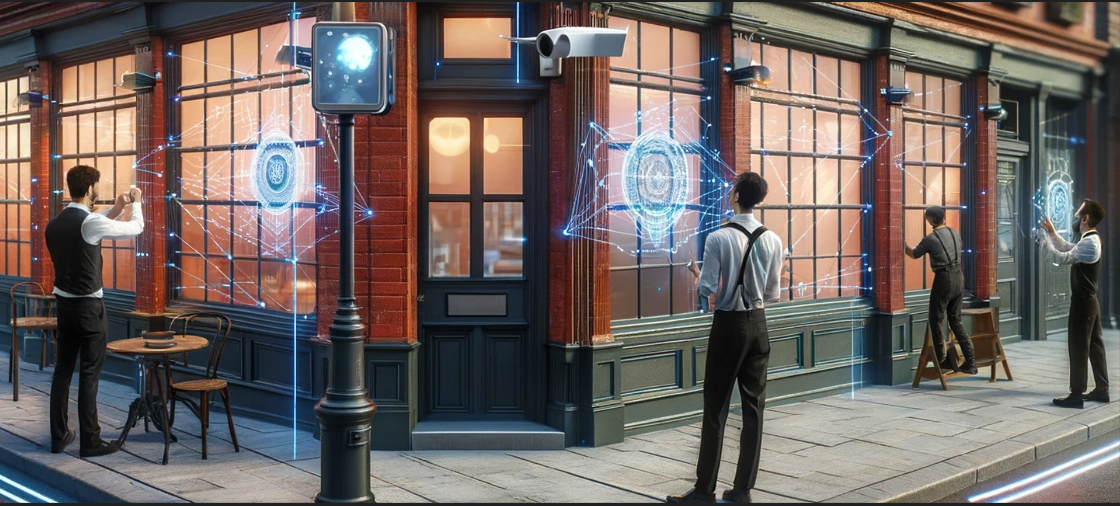Artificial intelligence (AI) has emerged as a transformative force across various industries, and brick-and-mortar businesses are no exception. In this article, we’ll explore the profound implications of AI on traditional physical stores, examining how it can revolutionize customer experiences, inventory management, operational efficiency, data-driven decision-making, and security measures.
- Elevating the Customer Experience:
AI technology promises to redefine the way customers interact with brick-and-mortar businesses. Imagine entering a store where AI systems instantly recognize your preferences, past purchases, and even your current emotional state. This enables a shopping experience tailored to your unique needs. Facial recognition and natural language processing technologies enable stores to engage with customers on a deeper level, making their visits more enjoyable and efficient. - Revolutionizing Inventory Management:
AI holds the potential to significantly enhance inventory management for brick-and-mortar establishments. Through predictive analytics and machine learning algorithms, AI can predict demand, optimize stock levels, and automate restocking processes. This leads to reduced overstocking, minimized wastage, and ensures products are consistently available to meet customer demand. The result is a more efficient supply chain and improved profitability. - Streamlining Operational Efficiency:
AI-powered robots and automation systems are no longer limited to warehouses; they are increasingly being integrated into brick-and-mortar stores. Robots can perform tasks such as inventory checks, cleaning, and assisting customers with information and guidance. Automated checkout kiosks and smart shelves further enhance operational efficiency, reducing the need for human intervention in routine tasks and enabling employees to focus on more value-added activities. - Harnessing Data for Informed Decisions:
AI is not just about automation; it’s about leveraging data for informed decision-making. Brick-and-mortar businesses accumulate vast amounts of data on customer behavior, foot traffic, and sales patterns. AI algorithms can process this data in real-time, providing insights that empower businesses to adapt quickly to market trends. This data-driven decision-making can lead to more effective marketing strategies, improved product offerings, and enhanced customer satisfaction. - Fortifying Security and Loss Prevention:
AI-powered security systems are becoming increasingly sophisticated, offering brick-and-mortar businesses robust safeguards for their premises and assets. Facial recognition technology can identify potential threats or suspicious individuals, while AI-driven video analytics can continuously monitor in-store activities and promptly alert staff to any unusual behavior. Furthermore, AI can bolster inventory security by identifying theft patterns and minimizing losses.
Conclusion:
In conclusion, the future of AI in brick-and-mortar businesses is extraordinarily promising. From reimagining customer experiences to optimizing inventory management, streamlining operations, enabling data-driven decisions, and fortifying security, AI is poised to reshape the landscape of traditional retail. Businesses that embrace AI technologies will not only enhance their competitiveness but also provide customers with more personalized, efficient, and secure shopping experiences. As we move forward, the seamless integration of AI into brick-and-mortar establishments will be the key to unlocking their full potential.
